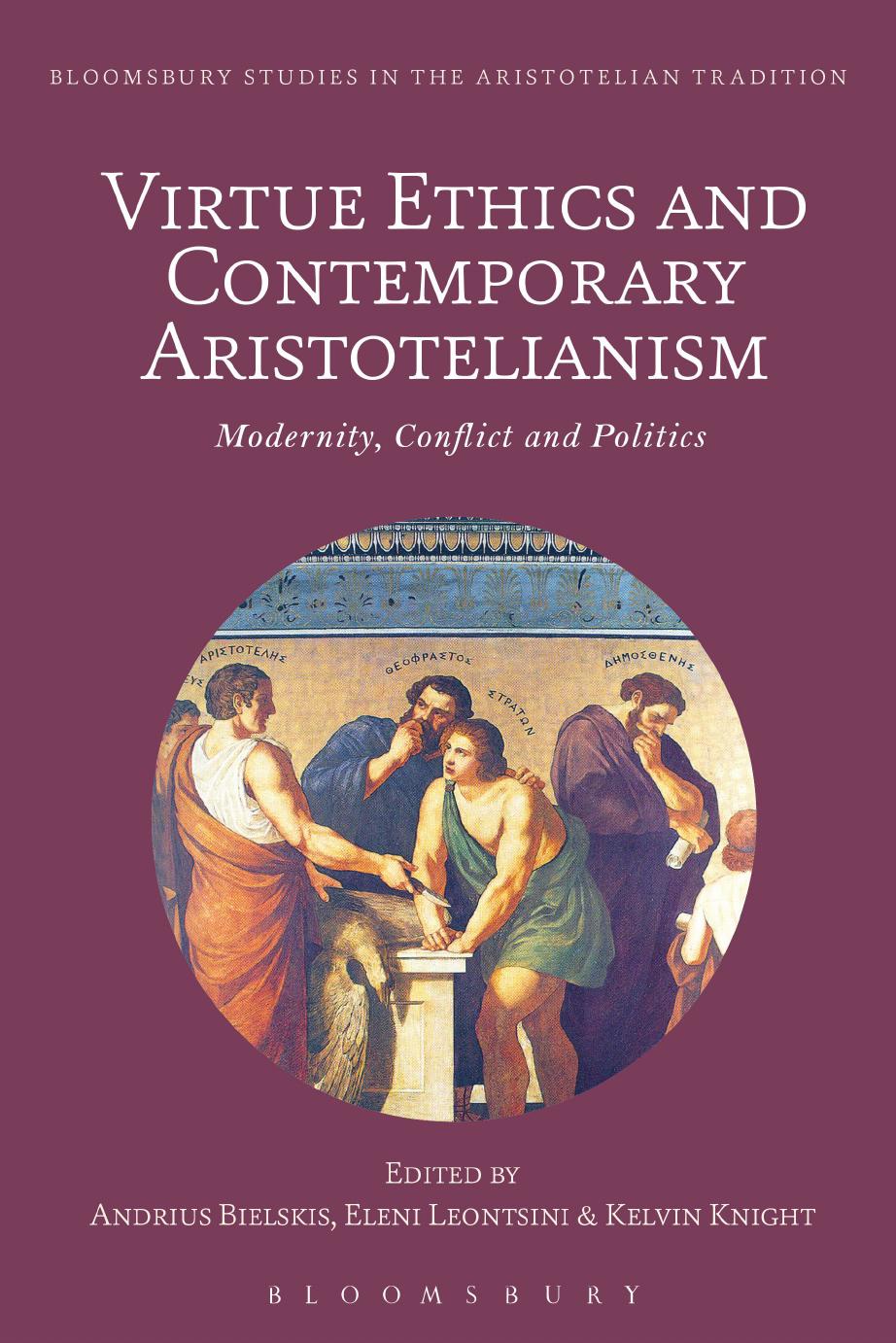Virtue Ethics and Contemporary Aristotelianism by Andrius Bielskis;Eleni Leontsini;Kelvin Knight;

Author:Andrius Bielskis;Eleni Leontsini;Kelvin Knight;
Language: eng
Format: epub, pdf
ISBN: 9781350122192
Publisher: Bloomsbury UK
8
Virtues and the common good
Alasdair MacIntyre reads Aristotle
Christof Rapp
Aristotle is famous for stressing the impact of the legislation in the city-state on the moral development of its citizens. Also, it is crucial for Aristotleâs political theory that a city-state is the kind of community that strives for a common good or purpose and that citizens are assessed according to their contribution to the realization of this common purpose. At first glance this looks pretty similar to Alasdair MacIntyreâs approach to virtue ethics, especially with respect to the role of communities and questions of justice. These similarities notwithstanding, this chapter attempts to pinpoint some crucial differences. Above all, it turns out to be difficult for any community-relative conception of the virtues to integrate Aristotleâs appeal to human nature. Moreover, one might question whether Aristotle would be willing to join MacIntyre in rejecting community-independent standards of justice. MacIntyreâs interpretations of Aristotle are too complex to do justice to them in their entirety here. However, the general contours of his reading seem to be clear.
1 Background: The revival of Aristotelian ethics
One of the most influential debates in contemporary political theory was, and to some extent still is, the dispute between liberalism and communitarianism. It is well known that modern communitarianism essentially stems from a critique of liberal conceptions of the state and â connected with this â a critique of modern moral philosophy in general. To some extent, the critique was a reaction to John Rawlsâs thought experiment of the so-called veil of ignorance, which, according to the critique, presupposes the conception of a socially and historically unconditioned self. This conception in turn is seen as inspired by early modern philosophy, among others the philosophy of Immanuel Kant. Thus, if the theoretical sources of liberalism are to be found in certain intellectual developments of modernity, it makes sense to outline an alternative that draws on pre-modern thinking or is at least intellectually kindred to pre-modern ideas. In this regard, communitarianism situated itself very similarly to the simultaneously emerging virtue ethics, which was originally motivated by the critique of the theories of deontology and consequentialism prevailing in modern moral philosophy and was then further developed through an appeal to premodern theories of virtue (see most notably Anscombe 1958; Williams 1985). Now so-called pre-modern ethics is itself an extremely complex and multifaceted endeavour; Aristotle or the âAristotelian traditionâ are regularly involved in these appeals to pre-modernity, since Aristotelian ethics, which was taken up in the Middle Ages by Thomas Aquinas and adapted to a Christian framework, is considered at a very general level the major alternative to modern moral philosophy insofar as Aristotle was concerned â very roughly speaking â primarily with happiness and the virtues rather than duties and rights, and insofar as the morality of the individual seems, in his thought, to be intimately connected with the morality of the political community.
The object of Aristotleâs political philosophy is the Greek city-state, the polis. The city-state represents the kind of political community that Aristotle was closest to and most familiar with due to his own life experience.
Download
Virtue Ethics and Contemporary Aristotelianism by Andrius Bielskis;Eleni Leontsini;Kelvin Knight;.pdf
This site does not store any files on its server. We only index and link to content provided by other sites. Please contact the content providers to delete copyright contents if any and email us, we'll remove relevant links or contents immediately.
The remains of the day by Kazuo Ishiguro(8378)
Tools of Titans by Timothy Ferriss(7803)
Giovanni's Room by James Baldwin(6802)
The Black Swan by Nassim Nicholas Taleb(6758)
Inner Engineering: A Yogi's Guide to Joy by Sadhguru(6438)
The Way of Zen by Alan W. Watts(6286)
Asking the Right Questions: A Guide to Critical Thinking by M. Neil Browne & Stuart M. Keeley(5353)
The Power of Now: A Guide to Spiritual Enlightenment by Eckhart Tolle(5329)
The Six Wives Of Henry VIII (WOMEN IN HISTORY) by Fraser Antonia(5234)
Astrophysics for People in a Hurry by Neil DeGrasse Tyson(4998)
12 Rules for Life by Jordan B. Peterson(4159)
Housekeeping by Marilynne Robinson(4057)
The Ethical Slut by Janet W. Hardy(4036)
Skin in the Game by Nassim Nicholas Taleb(3964)
Double Down (Diary of a Wimpy Kid Book 11) by Jeff Kinney(3921)
Ikigai by Héctor García & Francesc Miralles(3888)
The Art of Happiness by The Dalai Lama(3844)
Skin in the Game: Hidden Asymmetries in Daily Life by Nassim Nicholas Taleb(3719)
Walking by Henry David Thoreau(3681)
